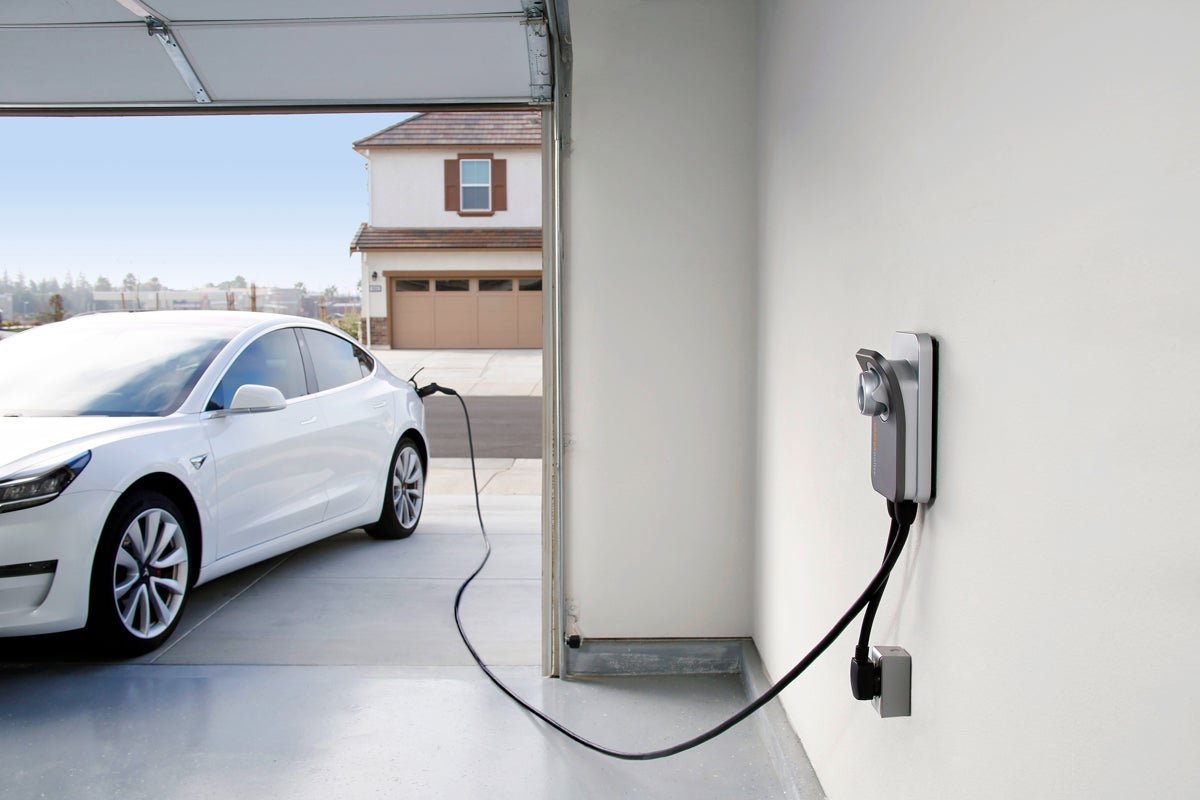how much to install electric car charger at home
When it comes to embracing the future of transportation, there is no denying that electric cars are leading the way. With their eco-friendly nature and impressive technology, these vehicles are quickly becoming a popular choice for many. One important aspect to consider when owning an electric car is the installation of a Level 2 charger, which allows for faster and more efficient charging. Let's explore the process of installing a Level 2 charger for an electric car and understand why it is essential.
Installing a Level 2 Charger for an Electric Car
Electric cars are revolutionizing the automotive industry with their clean energy and reduced carbon footprint. However, to fully optimize the benefits of owning an electric car, it is crucial to have access to a Level 2 charger. Compared to a standard Level 1 charger, which typically uses a regular household outlet, a Level 2 charger offers a faster charging experience.

The installation process for a Level 2 charger begins with selecting a suitable location. Most individuals opt to install the charger in their garage for convenience and security. It is important to ensure that the chosen location complies with local regulations and provides easy access to the electric vehicle.
Once the location is finalized, a certified electrician should be hired to handle the installation. The electrician will evaluate the electrical capacity of the house and determine if any upgrades are necessary. This may include installing a dedicated circuit or panel to support the Level 2 charger. It is crucial to hire a professional to ensure that the installation adheres to safety standards and local codes.
After the electrical upgrades, the installation of the charger can be accomplished. The Level 2 charger is typically hardwired to the electrical system of the house. This ensures a secure connection and minimizes the risk of accidents or damage. The charger should also be mounted on a sturdy surface to ensure stability and ease of use.
Once the installation is complete, it is essential to test the charger to ensure everything is functioning correctly. This can be done by plugging in the electric vehicle and monitoring the charging process. If any issues arise, it is recommended to consult the electrician or charger manufacturer for assistance.
In conclusion, the installation of a Level 2 charger is a crucial step in optimizing the benefits of owning an electric car. With its faster charging speed and improved efficiency, a Level 2 charger provides an enhanced charging experience. By selecting a suitable location, hiring a certified electrician, and ensuring proper installation, electric car owners can enjoy the convenience and reliability of their vehicles.
Electric Car Charging Cost in India - Newest Update
The adoption of electric vehicles in India is gaining momentum, thanks to the increasing environmental consciousness and government initiatives. However, one aspect that car owners often consider is the cost of charging their electric vehicles at home. Let's explore the current scenario of electric car charging cost in India.

In India, the cost of charging an electric car primarily depends on the electricity tariff set by the respective state's electricity board. The tariff may vary from state to state, and it is crucial for electric car owners to be aware of the rates applicable in their region.
The cost of charging an electric car can be estimated by considering the electricity tariff per unit consumed (kWh) and the average consumption of an electric vehicle. As of the newest update, the average electricity tariff for domestic consumers in India ranges from Rs. 4 to Rs. 8 per unit. An electric vehicle typically consumes around 0.2 to 0.3 kWh per kilometer, depending on the model and driving conditions.
Using these figures, we can calculate the approximate cost of charging an electric car in India. For instance, let's consider a scenario where the electricity tariff is Rs. 6 per unit, and the electric vehicle consumes 0.25 kWh per kilometer. If the total distance covered is 100 kilometers, the cost of charging the electric car would be around Rs. 15 (0.25 kWh/km x 100 km x Rs. 6/kWh).
It is important to note that the cost of charging an electric car at home can be significantly lower than refueling a petrol or diesel vehicle. The average cost of petrol in India is around Rs. 80 per liter, and the average fuel efficiency of a petrol car is approximately 15 km per liter. Comparatively, an electric vehicle can cover the same distance at a much lower cost, resulting in long-term savings for the owner.
In addition to the cost of charging at home, it is worth mentioning that some public charging stations in India may offer free or subsidized charging services to promote the usage of electric vehicles. This further reduces the overall cost of owning and operating an electric car in the country.
In conclusion, the cost of charging an electric car in India depends on the electricity tariff applicable in the respective state. By considering the electricity tariff per unit consumed and the average consumption of an electric vehicle, individuals can estimate the cost of charging their electric cars at home. With the cost of electricity generally being lower than traditional fuel prices, electric vehicles offer a cost-effective and environmentally friendly transportation option in India.
